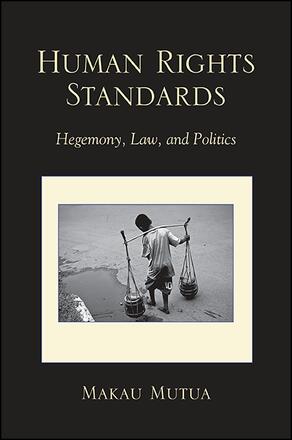
Human Rights Standards
Hegemony, Law, and Politics
Alternative formats available from:
Open access edition available from:
A bracing critique of human rights law and activism from the perspective of the Global South.
Description
How are human rights norms made, who makes them, and why? In Human Rights Standards, Makau Mutua traces the history of the human rights project and critically explores how the norms of the human rights movement have been created. Examining key texts and documents published since the inception of the human rights movement at the end of World War II, he crafts a bracing critique of these works from the hitherto underutilized perspective of the Global South. Attention is focused on the deficits of the international order and how that order, which is defined by multiple asymmetries, defines human rights in a manner that exhibits normative gaps and cultural biases. Mutua identifies areas of further norm development and concludes that norm-creating processes must be inclusive and participatory to garner legitimacy across various cleavages and divides. The result is the first truly comprehensive critical look at the making of human rights norms and standards and, as such, will be an invaluable resource for students, scholars, activists, and policymakers interested in this important topic.
This book is freely available in an open access edition thanks to Knowledge Unlatched—an initiative that provides libraries and institutions with a centralized platform to support OA collections and from leading publishing houses and OA initiatives. Learn more at the Knowledge Unlatched website at: https://www.knowledgeunlatched.org/, and access the book online at the SUNY Open Access Repository at http://hdl.handle.net/20.500.12648/7133
.
Makau Mutua is SUNY Distinguished Professor and Floyd H. and Hilda L. Hurst Faculty Scholar at SUNY Buffalo Law School. He is the author of Kenya's Quest for Democracy: Taming Leviathan and Human Rights: A Political and Cultural Critique .
Reviews
"…Mutua has delivered a critical analysis of the current state of human rights and the institutions that purport to advance and champion them. The guiding principle of this book is that the importance of history cannot and should not be underestimated … It is highly recommended for human rights campaigners, graduate students and university libraries. " — African and Asian Studies